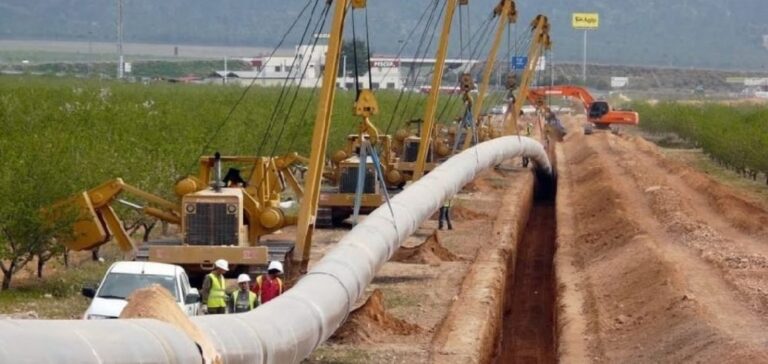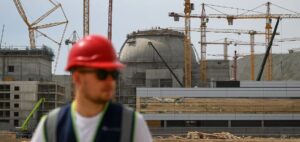Both Morocco and Algeria have launched competing pipeline projects to Nigeria, with the common goal of targeting the European market. However, the EU’s decision to move away from fossil fuels by the end of the decade raises questions about the relevance of these projects.
Nigeria-Morocco Gas Pipeline (NMGP)
The most recent of these projects is the Nigeria-Morocco Gas Pipeline (NMGP), which is about 6,000 km long and will carry billions of cubic meters of Nigerian gas to Morocco through 13 African countries along the Atlantic coast. Morocco plans to connect it to the Maghreb Europe Pipeline (GME), after Algeria terminated the GME contract serving Spain with Algerian gas via Morocco, following the breakdown of diplomatic relations between the two countries.
The NMGP is also motivated by the current geopolitics marked by soaring hydrocarbon prices since the Russian invasion of Ukraine. However, the implementation of this pipeline remains conditional on obtaining the agreement of the countries through which it will pass. To this end, Rabat and Abuja have signed seven memoranda of understanding with ECOWAS countries and other West African countries in 2022.
The Trans-Saharan Gas Pipeline (TSGP)
The Trans-Saharan Gas Pipeline (TSGP) is the other mega-project in the region, which will link Nigeria to Algeria via Niger, at an estimated cost of between 12 and 18 billion euros. This project also aims to bring Nigerian gas to Europe. Once it arrives in Algeria, it should be shipped there, in particular via the Transmed pipeline which already links the Algerian fields to Italy via Tunisia.
Europe’s future needs
However, the EU has stated that it wants to move away from fossil fuels in the medium term, which raises questions about the relevance of these pipeline projects. The head of European diplomacy, Josep Borrell, emphasizes that Morocco has a strong potential in clean energy such as hydrogen, wind and solar. The final decisions on these projects will therefore be conditioned by Europe’s future needs in terms of clean energy.
In the meantime, the three partners – Algeria, Nigeria and Niger – are looking for donors to carry out these projects. Technical studies are underway and it will take another two to three years for the finalization of these mega pipeline projects.





















